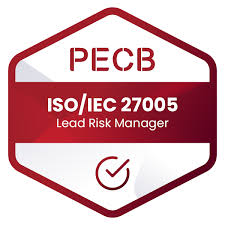ISO/IEC 27005 Lead Risk Manager

About Course
The ISO/IEC 27005 Lead Risk Manager course is designed to equip learners with the expertise to support an organization in implementing a risk management program based on ISO 27005 guidelines. This course provides in-depth knowledge on the principles, frameworks, and processes necessary for the effective management of ISO 27005 risk. Module 1 introduces the course structure and delves into concepts and definitions of risk, setting the stage for implementing a risk management program and establishing its context. Module 2 focuses on the identification, evaluation, and treatment of risk as per ISO 27005 standards. Learners will engage with quantitative and qualitative methods for risk assessment and explore various treatment options. Module 3 covers the acceptance, communication, consultation, monitoring, and review of information security risks, ensuring a comprehensive approach to risk management. Module 4 presents different risk assessment methodologies like OCTAVE, MEHARI, EBIOS, and Harmonized TRA, providing a diverse toolkit for professionals. Finally, Module 5 prepares learners for the certification exam, which upon passing, validates one’s competency as an ISO 27005 Lead Risk Manager, bolstering their professional standing and enhancing their ability to manage risks effectively within an organization.